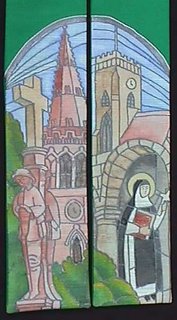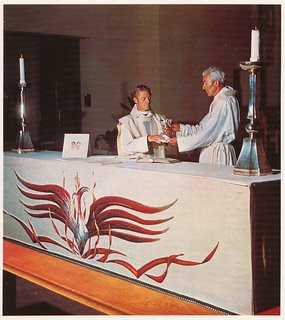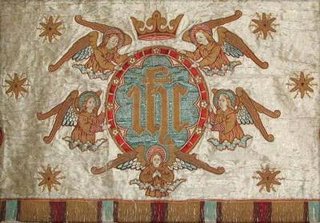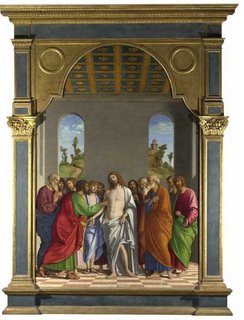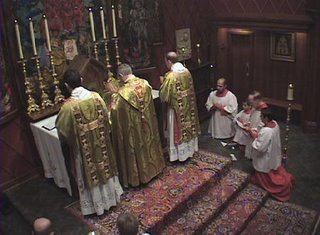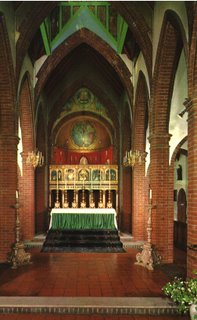
In the Name of the Father and of the Son and the Holy Ghost. Amen.
Read the Epistle for this Sunday:
Romans 6:19-23Euripides BC 480-406, Greek Tragic Poet; "No one is truly free, they are a slave to wealth, fortune, the law, or other people restraining them from acting according to their will."
19 I speak after the manner of men because of the infirmity
of your flesh: for as ye have yielded your members servants to uncleanness and
to iniquity unto iniquity; even so now yield your members servants to
righteousness unto holiness. 20 For when ye were the servants of sin, ye were
free from righteousness. 21 What fruit had ye then in those things whereof ye
are now ashamed? for the end of those things is death. 22 But now being made
free from sin, and become servants to God, ye have your fruit unto holiness, and
the end everlasting life. 23 For the wages of sin is death; but the gift of God
is eternal life through Jesus Christ our Lord.
Being a slave has consequences for the one who is enslaved. In his letter to the church at Rome, the apostle Paul picks up on this idea that everyone is a slave. He contrasts what the Romans believers were like before they came to faith, "servants/slaves of sin" v.20, and what they are like now, "servants/slaves to God" v.22. The Greek word translated "servant" should really be "slave".
We could call these two journeys.
Being a slave to sin involves leading an unrighteous life. A life contrary to God's perfect will. That life is fruitless and leads to shame. Following this way ultimately leads to death, that is to say, separation from God.
Being a slave to God involves being "free from sin", v.22.
John Newton; "I am not what I might be, I am not what I ought to be, I am not what I wish to be, I am not what I hope to be. But I thank God I am not what I once was, and I can say with the great apostle, "By the grace of God I am what I am."
Believers are not completely free from sin this side of glory, but there is the power to reject it and the desire to live for something else. This leads to the fruit of holiness, v22, which results in eternal life. A life lived in a right relationship with God. This starts in this life and blossoms into eternity.
We can never be truly free in the sense that our freedom will affect ourselves and other people. The exercise of our freedom could take away other people's freedom. The question, then, is what we want to be slaves of. Slaves of sin or slaves of God?
If we are slaves of sin this may bring some temporary and futile pleasures but they will separate us from God, perhaps harm other people, and even harm our eternal destiny.
To be a slave of God is to follow the ways of the one who loves everyone and has the best interest of everyone at heart
Paul encourages the Roman Christians to continue following Jesus in their lives. It is through knowing and following Jesus that we can receive the gift of eternal life, v.23. It is a gift. Freely and generously given. It has to be opened, experienced and lived out. It will involve us imitating Jesus and bring benefits for us and others. We should be determined to follow him and be a slave to God
Mother Teresa, 1910-1997, Albanian-born Roman Catholic Missionary; "We must have a real living determination to reach holiness. ''I will be a saint'' means I will despoil myself of all that is not God; I will strip my heart of all created things; I will live in poverty and detachment; I will renounce my will, my inclinations, my whims and fancies, and make myself a willing slave to the will of God."
Thanks be to God….
I wish you a blessed Sunday,
Ed Bakker

